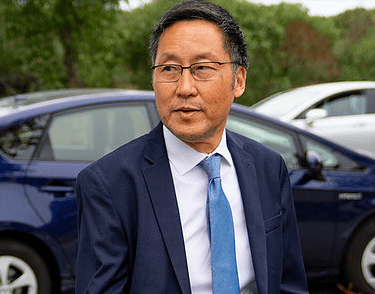
Supervisor Gordon Mar wants a hearing on the impacts of the IPOs that are the result of the Twitter tax break and that threaten to overwhelm San Francisco with new millionaires.

Mar called Tuesday for a hearing on
how IPOs for large companies affect housing prices, gentrification, traffic congestion, and wealth inequality.
“As a city with one of the largest wealth gaps in the world, we must better understand the consequences of this extreme inequality and rapid injection of new wealth” said Mar. “We have already seen this before. We have already seen new wealth pour into this city, to the benefit of the few, and to the harm of the many.”
I don’t think there will be any surprises from the Controller’s Office or any other agency that looks honestly at what’s about to happen when Uber, Lyft, and Airbnb – all of which got their start by breaking the law in San Francisco with impunity under the administration of the late Mayor Ed Lee – go public. There will be massive pressure on the housing market; more tenants will be evicted as landlords and speculators seek to capitalize on the new millionaires.
There are already vacant storefronts all over town – and that’s no surprise: The real-estate industry knows exactly what’s happening, and landlords who might otherwise have rented to a modest local store or restaurant figure that the vast influx of new money will mean higher-end tenants in the future.
I asked Edward Wright, an aide to Mar, what the policy solutions might entail, and he said that everything is on the table. “But the first thing we’re looking at is a stock-options tax,” he said.
The real reason for the Twitter tax break, of course, was not that tech companies were worried about the relatively tiny cost of the city’s payroll tax. (For more than two decades, I helped manage a company that paid significant payroll taxes, and let me tell you: It was never a factor in hiring. You want to hire a new worker for $50,000? Well, you have to pay the government $3,700 a year in social security. You need to spend at least another $7,000 a year for health care. Disability? Training? Equipment? Now we’re taking a total of $10,000 on top of the salary. The payroll tax would be $750 a year.)
No: The Twitter tax break was really all about stock options, about making sure that nobody had to pay the city when companies went public and billions of dollars were made.
So now we have companies that are worth hundreds of billions of dollars (again, thanks in part to San Francisco allowing them to break the law for years) and their IPOs will have a massive impact on this city.
Can we go back and tax the IPO money? It’s certainly an argument. Applying a payroll tax to stock options would bring in enough money in San Francisco to pay for a lot of affordable housing.
A whole lot of affordable housing.
If, as some predict, the IPOs will lead to some 10,000 new millionaires, that’s at least $10 billion in value, and probably many times more than that (since $1 million will be in the low end of the new wealth). Even a 1.5 percent tax on new option wealth would bring in a minimum of $150 million a year, probably three or four times that amount.
Add that to Prop. C and we’re talking enough money to build or preserve tens of thousands of units of non-market housing in the next few years. Not the end of gentrification, but a start.
Could that actually happen? Sure – if the mayor and the supes were willing to take a profound stand against economic inequality. At least Mar is raising the issue.

